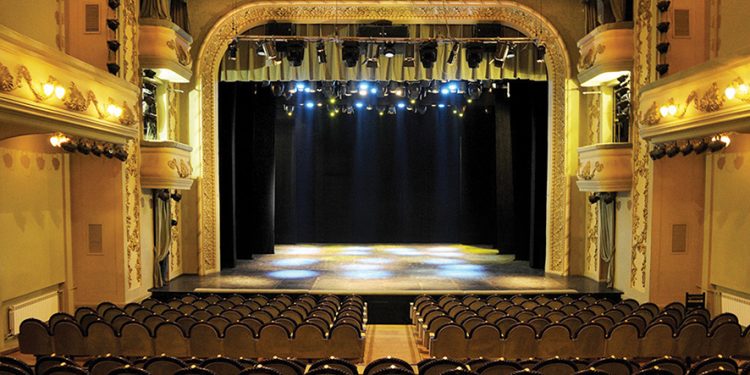In December 2024, Georgia’s cultural institutions joined the frontlines of a nationwide protest against the government’s controversial actions: the freezing of Georgia’s EU accession process and the announcement of disputed election results. Theaters, concert halls, and festivals became silent, not from a lack of purpose, but as an act of deliberate resistance. From the Baroque Festival to the Royal District Theater, the cancellations of performances, exhibitions, and tours resonated as powerful symbols of dissent, underscoring the unique role of culture in political advocacy.
When Art Stops: The Power of Cultural Strikes
The cessation of cultural activities disrupts more than calendars and ticket sales—it unsettles the emotional and intellectual rhythms of society. Georgia’s cultural strikes have proven that silence can speak volumes. By pausing their offerings, institutions have forced both the public and policymakers to confront the void left by their absence. This tactic leverages the unique societal role of culture: a provider of solace, a platform for reflection, and a space for dialogue.
The symbolic weight of a cultural strike stems from the essential nature of art itself. Unlike industrial strikes, which halt tangible production, cultural strikes withhold the intangible yet indispensable—the shared experience of beauty, creativity, and humanity. In a society as deeply tied to its artistic heritage as Georgia, this absence becomes a profound statement.
Historical Roots of Resistance in Georgian Culture
Georgia has long used culture as a weapon of resistance. During the Soviet era, art was both a refuge and a rebellion against ideological conformity. Plays, poetry, and visual art carried encoded messages of national identity and dissent. Today’s cultural strikes draw from this legacy, not only protesting immediate political grievances but also asserting broader principles of freedom and justice.
The current wave of cultural protests underscores a historic continuity: the artist as activist. This role is vividly embodied in the actions of Georgia’s leading institutions and figures, who have stepped beyond their creative domains to demand systemic change.
Let’s talk to others: A Beacon of Defiance
Actors and theater workers have rallied to demand the release of their colleague, Andro Chichinadze, and other detainees arrested during protests. The theater’s actions exemplify the unity of purpose within Georgia’s cultural sector.
In a striking public address, an actor called on the The Marjanishvili Theater director to support a collective shutdown of all Georgian theaters. “Let’s talk to other theaters so that it is announced that until Andro Chichinadze and the other detainees are released, the theaters will be closed,” he urged. This call to action has galvanized broader support, transforming individual grievances into a unified demand for justice.
Art and Absence: The Silent Protest
The deliberate cancellation of cultural events transforms absence into presence. When institutions like Opera Theater, Haraki, Conservatory, and Factory 42 go dark, they amplify the stakes of the moment. The silence of a closed theater or the emptiness of an unlit stage becomes a haunting reminder of what is at risk: the freedom to create, to critique, and to connect.
The decision to strike is not without sacrifice. For many cultural organizations, cancellations mean financial loss and uncertainty. Yet, this very vulnerability underscores the moral urgency driving their actions. By choosing solidarity over stability, Georgia’s cultural institutions reaffirm their commitment to societal values above commercial interests.
A New Kind of Audience Engagement
Cultural strikes also redefine the relationship between art and its audience. In this moment, the public becomes not just consumers of culture, but participants in its creation and preservation. By aligning themselves with the broader protest movement, cultural institutions invite audiences to see them not merely as providers of entertainment, but as ethical leaders.
This shift in audience engagement is particularly potent in Georgia, where cultural life is deeply woven into the fabric of national identity. The closure of theaters and festivals disrupts not just leisure but the collective conscience, prompting citizens to reflect on the essential role of culture in civic life.
Striking for Peace: Art as Reconciliation
While cultural strikes are acts of defiance, they also embody the potential for reconciliation. Theaters and cultural workers are not merely protesting against something; they are advocating for a vision of society where dialogue and creativity thrive. By pausing their activities, they create a space for reflection and negotiation, offering a peaceful yet forceful way to demand accountability.
This duality—resistance through withdrawal—is uniquely suited to the arts. It reflects the transformative power of culture to challenge and inspire, to critique and heal. In Georgia’s current crisis, cultural strikes are not just acts of protest; they are calls to imagine a more just and equitable future.
The Stakes of Cultural Silence
The ongoing cultural strikes in Georgia highlight the profound impact of artistic absence. As theaters close their doors and stages go dark, they transform voids into spaces of resistance. This strategy draws attention not only to the immediate political crisis but also to the broader question of what society loses when art is silenced.
In a country where culture has always been a cornerstone of identity and resilience, these strikes are more than acts of defiance—they are declarations of hope. They remind us that art is not just a reflection of society, but a catalyst for change. As Georgia’s cultural institutions continue their strike, they reaffirm the enduring power of creativity to challenge oppression and envision a brighter future.
By Ivan Nechaev














